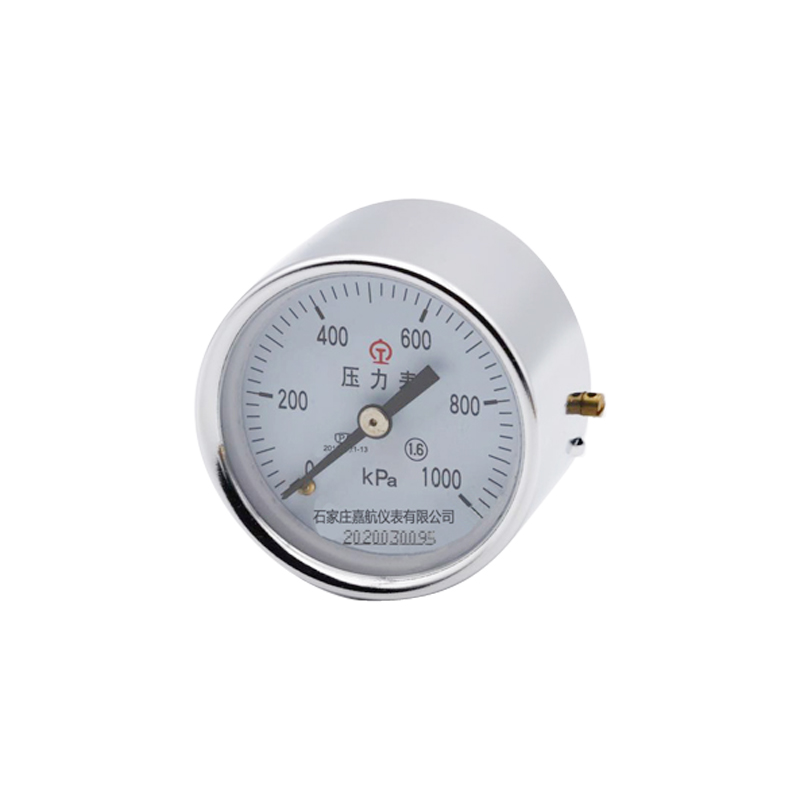
Nov . 27, 2024 03:59 Back to list
Top Differential Pressure Gauge Accuracy Ratings for Various Applications
Understanding the Accuracy of Famous Differential Pressure Gauges
Differential pressure gauges are essential instruments used in various industrial applications to measure the pressure difference between two points in a system. With their wide application range—from HVAC systems to chemical processing—they play a crucial role in ensuring safety, efficiency, and optimal performance in operations. One of the most critical parameters of these gauges is their accuracy. Accuracy in differential pressure measurement directly impacts process control and monitoring. This article explores the concept of accuracy in differential pressure gauges, the factors influencing it, and highlights some of the most respected brands in the industry known for their precision.
Importance of Accuracy in Differential Pressure Gauges
Accuracy in differential pressure measurements is vital to maintaining optimal operating conditions in industrial processes. A small error in pressure readings can lead to incorrect flow measurements, inefficient operation, and potential hazards in systems involving gases or liquids. For instance, in HVAC systems, inaccurate pressure readings can result in poor airflow, leading to increased energy consumption and compromised indoor air quality.
Moreover, in industries like pharmaceuticals or food processing, where hygiene and product quality are paramount, precise pressure measurements are essential to ensure compliance with regulatory standards. Therefore, selecting a differential pressure gauge with high accuracy is crucial for industry professionals to ensure their systems operate safely and efficiently.
Factors Affecting Accuracy
Several factors influence the accuracy of differential pressure gauges
1. Calibration Regular calibration is essential for maintaining the gauge's accuracy. Gauges may drift over time due to environmental conditions or wear and tear. A regularly calibrated gauge ensures the readings reflect the true pressure difference.
2. Temperature Effects Differential pressure gauges can be sensitive to temperature fluctuations. Changes in temperature can affect the sensing element and the fluid within the gauge, leading to measurement errors.
3. Static Pressure Influence In certain situations, the static pressure of the system can affect the differential pressure measurement. High static pressures can exert additional forces on the gauge, skewing the readings.
4. Installation and Orientation The installation process must be done as per the manufacturer’s guidelines. Improper orientation or mounting can lead to incorrect readings, as can the presence of vibrations or external forces.
famous differential pressure gauge accuracy

5. Fluid characteristics The nature of the fluid being measured can also affect accuracy. For example, fluids with high viscosity or those with particulates may present challenges that can result in measurement inaccuracies.
Leading Brands in Differential Pressure Measurement
When it comes to selecting high-accuracy differential pressure gauges, several brands stand out for their commitment to quality and precision.
1. Emerson Known for its range of precision instruments, Emerson's differential pressure gauges are celebrated for their reliability and accuracy across various applications. Their innovative designs incorporate advanced materials and technology, ensuring superior performance.
2. Ashcroft A leader in pressure measurement solutions, Ashcroft offers differential pressure gauges with high accuracy ratings. They are widely recognized for their durability and have become a standard in many industries.
3. WIKA Renowned for its measuring technology, WIKA produces differential pressure gauges that are both highly accurate and robust. Their products come with a variety of options allowing for customization based on specific application needs.
4. Honeywell With a focus on safety and efficiency, Honeywell's differential pressure gauges integrate technology that ensures high precision in measurements, making them a preferred choice in critical applications.
5. Endress+Hauser This brand is well-known for its innovative process automation solutions. Their differential pressure gauges are designed to offer high accuracy and reliability in harsh industrial environments.
Conclusion
In conclusion, the accuracy of differential pressure gauges is a crucial factor that influences operational efficiency and safety across numerous industries. Understanding the various factors affecting this accuracy and selecting a reputable brand can significantly enhance the reliability of pressure measurements. Investing in high-quality differential pressure gauges not only ensures compliance with industry standards but also contributes to the overall efficiency and safety of industrial processes.
-
High-Precision 5 Valve Manifold Differential Pressure Gauge Suppliers
NewsApr.29,2025
-
High-Precision Diaphragm Vacuum Pressure Gauges Manufacturers & Quotes
NewsApr.29,2025
-
Omega Differential Pressure Gauges High Accuracy & Durability
NewsApr.28,2025
-
Low Pressure Differential Pressure Gauges Precision Solutions & Quotes
NewsApr.28,2025
-
Digital Diaphragm Pressure Gaauge Precision Measurement & OEM Quotes
NewsApr.28,2025
-
Differential Pressure Gauge China Price High-Accuracy & Best Quotes
NewsApr.28,2025
